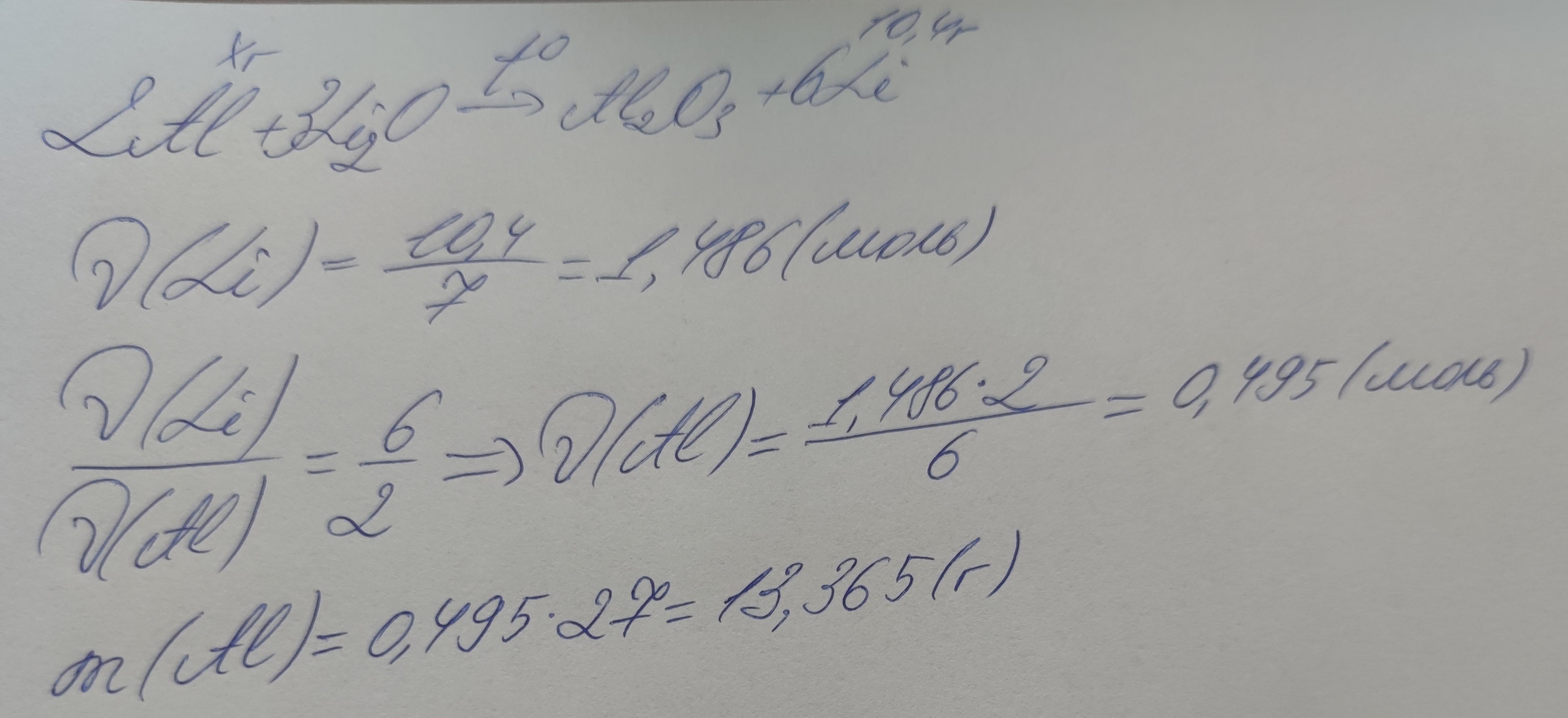Предмет: Химия,
автор: EAS06
. Какую массу алюминия необходимо взять для получения 10,4 г лития из оксида лития алюмотермическим способом.
Ответы
Автор ответа:
1
Всё расписал на фото
Приложения:

Похожие вопросы
Предмет: Русский язык,
автор: 5умница5
Предмет: Окружающий мир,
автор: Оджин
Предмет: Русский язык,
автор: ирина695
Предмет: Математика,
автор: egor99991
Предмет: Геометрия,
автор: dimaavin